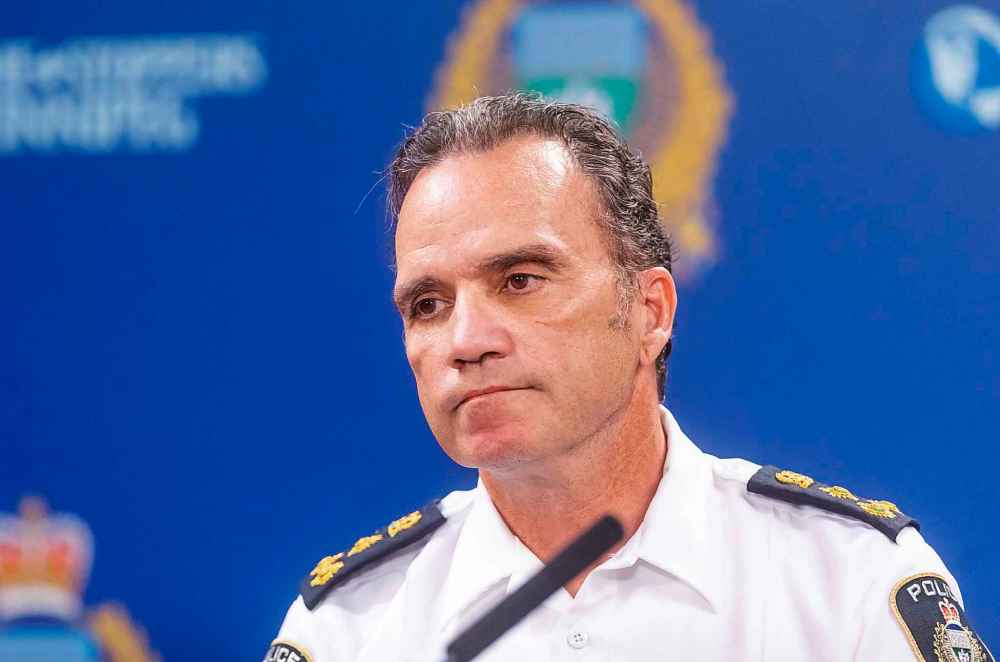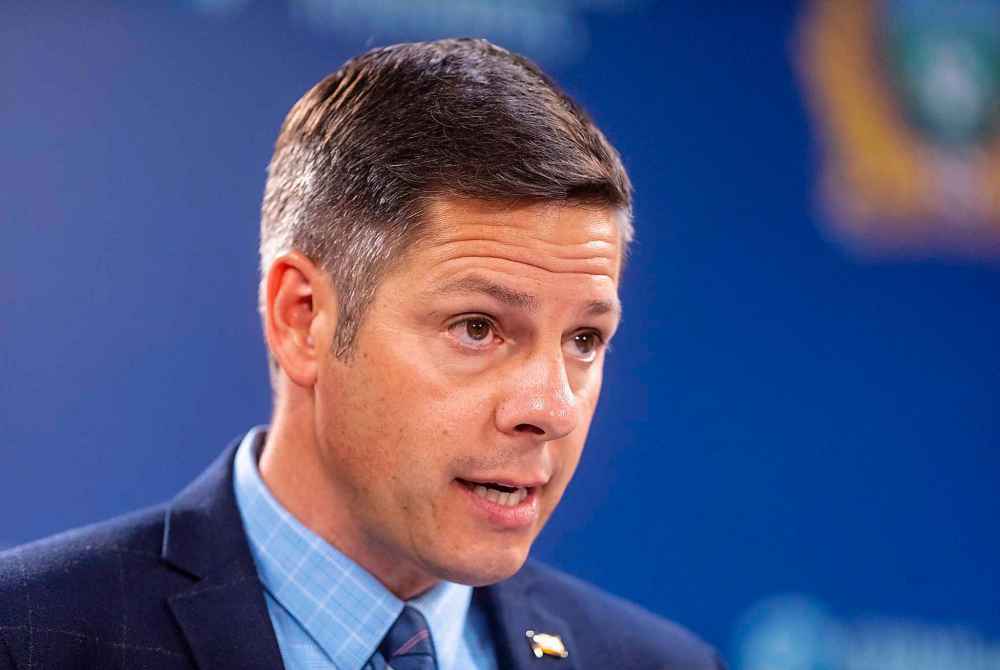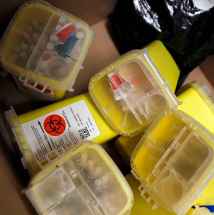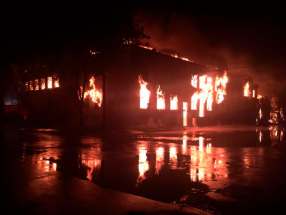City’s top cop dials 911 Soaring meth-fuelled crime rate among worst in Canada, stats reveal; police chief, mayor demand province's help
Read this article for free:
or
Already have an account? Log in here »
To continue reading, please subscribe:
Monthly Digital Subscription
$0 for the first 4 weeks*
- Enjoy unlimited reading on winnipegfreepress.com
- Read the E-Edition, our digital replica newspaper
- Access News Break, our award-winning app
- Play interactive puzzles
*No charge for 4 weeks then price increases to the regular rate of $19.00 plus GST every four weeks. Offer available to new and qualified returning subscribers only. Cancel any time.
Monthly Digital Subscription
$4.75/week*
- Enjoy unlimited reading on winnipegfreepress.com
- Read the E-Edition, our digital replica newspaper
- Access News Break, our award-winning app
- Play interactive puzzles
*Billed as $19 plus GST every four weeks. Cancel any time.
To continue reading, please subscribe:
Add Free Press access to your Brandon Sun subscription for only an additional
$1 for the first 4 weeks*
*Your next subscription payment will increase by $1.00 and you will be charged $16.99 plus GST for four weeks. After four weeks, your payment will increase to $23.99 plus GST every four weeks.
Read unlimited articles for free today:
or
Already have an account? Log in here »
Hey there, time traveller!
This article was published 22/07/2019 (2331 days ago), so information in it may no longer be current.
The methamphetamine crisis has tightened its stranglehold on the streets of Winnipeg, driving double-digit increases in the city’s crime rate and crime severity index.
And unless immediate, concrete action is taken by the provincial government to address this ongoing public health crisis, Winnipeg Police Service Chief Danny Smyth says he fears the situation will continue to deteriorate.
“There is no other major city in Canada that is dealing with a meth crisis like we are… I’m concerned for the well-being of our members. I can see the strain they’re under. It’s difficult to sustain that for any length of time without hearing that some relief is coming,” Smyth told reporters Monday while releasing the city’s 2018 crime stats.

Earlier Monday, Statistics Canada also released its annual national data on police-reported crime.
In Winnipeg last year, there was a 44 per cent increase in property crime compared to the city’s five-year average. There was also an 18 per cent rise in violent crime for the same time period.
Smyth said the popularity and affordability of meth has left rank-and-file members of the force feeling under siege. It has been decades since anything affected the police force the way the meth crisis has, he said.
Distressing data
The crime rate in Winnipeg is rising at a pace that far outstrips the national average, new data released by Statistics Canada Monday shows.
The crime rate in Winnipeg is rising at a pace that far outstrips the national average, new data released by Statistics Canada Monday shows.
Winnipeg’s crime rate rose by 11 per cent in 2018 over the previous year, while its crime severity index rose by 10 per cent. As a whole, Canada saw a two per cent increase in both categories in 2018.
Only two other cities — Regina and Lethbridge — registered a crime severity index higher than Winnipeg’s.
The Statistics Canada report, which is released annually, relies on police-reported crime statistics. However, the numbers paint only a partial picture of crime in Canada.
It is believed that roughly 31 per cent of violent and non-violent incidents are reported to the police, according to the latest General Social Survey on Victimization.
Manitoba reported a six per cent increase in its crime severity index last year, the Statistics Canada data reports. It was one of five provinces to register a year-over-year increase in 2018.
Among all provinces, Manitoba had the second-highest crime severity index and crime rate, coming in behind only Saskatchewan.
“There have been a few things that are game-changers. Certainly, when crack was introduced into the community some 25 years ago, that was a game-changer. Gangs were a game-changer. (Meth has) been a game-changer as well, just because the manner in which it’s impacting people,” he said.
“I dare say there would be very few of our front-line members who don’t deal with someone in some kind of a drug crisis each and every night.”
Total calls to the WPS communications centre rose by roughly five per cent in 2018 over the previous year, while jumping 11 per cent over the five-year average.
!function(e,t,s,i){var n=”InfogramEmbeds”,o=e.getElementsByTagName(“script”)[0],d=/^http:/.test(e.location)?”http:”:”https:”;if(/^/{2}/.test(i)&&(i=d+i),window[n]&&window[n].initialized)window[n].process&&window[n].process();else if(!e.getElementById(s)){var r=e.createElement(“script”);r.async=1,r.id=s,r.src=i,o.parentNode.insertBefore(r,o)}}(document,0,”infogram-async”,”https://e.infogram.com/js/dist/embed-loader-min.js”);
Smyth said the deluge of calls received by the communications centre every day has led to staff turnover, since some employees cannot cope with the “tremendous stress” associated with handling such massive call volumes.
He said used needles are being casually discarded on streets and sidewalks and parks in greater numbers than ever seen before.
In 2017, the Bear Clan Patrol picked up 4,000 used needles in Winnipeg. Last year, it collected 40,000. And through the first seven months of 2019, the group has already collected 60,000.
Mayor Brian Bowman echoed Smyth’s comments about the need for the provincial government to do more.
“We need both other levels of government taking immediate steps on an urgent basis, not campaign commitments. We need action. There’s nothing to stop the province from implementing some of the recommendations from the illicit drug task force,” Bowman said.
“We can’t wait for elections to come and go. We need immediate action, now. The concerns the chief is raising should be concerning to all Winnipeggers and they should be concerning to our provincial government officials to the point they act immediately.”
In response to the criticism, Justice Minister Cliff Cullen repeatedly pointed to steps the province has already taken to address the issue, such as launching Rapid Access to Addictions Medicine clinics, among other initiatives.

“We had a really good conversation with the chiefs of police last week. Certainly, they all expressed their frustration with where we’re at. Talking to my colleagues around the country and in the United States, they’re facing similar challenges,” Cullen said.
“We have a strategy in place across the province and part of that strategy is making sure we’re utilizing our police resources to the best of our ability.”
The Winnipeg Police Association — the union representing city cops — said in a written statement the latest crime stats show additional police resources are “urgently needed to protect innocent members of the public from a crime problem that is getting worse with each passing week.”
Manitoba Liberal Leader Dougald Lamont said Premier Brian Pallister’s PC government has been largely missing in action with regard to the drug crisis since being elected in spring 2016, a sentiment that’s been repeated by NDP Leader Wab Kinew in the past.
Smyth said crime in Winnipeg in 2019 is on pace to outstrip 2018 numbers and he expects to deliver an even grimmer annual report next year.
“Based on some of the indicators that I’ve shared with you today around homicides and shootings, yes, I do expect that the crime severity index will be worse next year,” he said.
Smyth said that while he’d like to see the province invest in safe shelters and detox units to help serve as a bridge to long-term care for addicts, he doesn’t support the creation of a supervised injection site.
“I don’t think that’s the answer for this problem. I’m not an expert in addictions, so I’m not going to weigh too heavily into that…. But I don’t know that anyone is set up to do safe injection sites for meth,” Smyth said.
“I don’t see that as part of the solution here.”
— With files from Jessica Botelho-Urbanski
ryan.thorpe@freepress.mb.ca
Twitter: @rk_thorpe
Winnipeg Police Service 2018 annual report

Ryan Thorpe likes the pace of daily news, the feeling of a broadsheet in his hands and the stress of never-ending deadlines hanging over his head.
Our newsroom depends on a growing audience of readers to power our journalism. If you are not a paid reader, please consider becoming a subscriber.
Our newsroom depends on its audience of readers to power our journalism. Thank you for your support.














